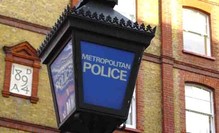
Appearing before the Home Affairs Select Committee today, Yates said that the Met's special crimes directorate is "doing some research" into an admission by former News of the World editor Rebekah Brooks that staff at News International had made payments to the force.
Brooks, who is now chief executive of News International, made the surprising admission in front of the Home Affairs Committee in March 2003.
"We have paid the police for information in the past," she told the committee, and when asked if the news organisation would do it again in future, replied: "It depends."
Yates acknowledged last week that "there were possible offences" in Brooks' admission, but admitted today that the Met had not approached her at the time to investigate further. Asked why not, he told MP Keith Vaz that: "It's always best to do the research first."
Yates ageed to appear before the Home Affairs Committee today after Chris Bryant, a Labour MP who believes he is a victim phone hacking, alleged that the police officer had misled MPs about the number of phone-hacking victims. Yates claimed at the time that between eight and 12 people had been victims, but it is now acknowledged that a list of between 91 and 120 names with telephone PIN numbers exists as evidence. A new police investigation was launched in January after News of the World supplied fresh evidence to the police.
Asked by the committee this morning whether he had misled MPs, Yates answered: "No, I most certainly did not". Bryant, who also appeared before the committee today, renewed his criticism of Yates, claiming he was "disingenuous in the extreme" to suggest such a small number of victims.
Yates has defended his estimate, claiming that he had followed advice from the Crown Prosecution Service defining a victim as someone who had his or her voicemail intercepted and listened to before it was heard by its intended recipient.
The CPS updated its definition in October 2010.
Bryant said today that the new Met investigation is being "admirably pursued as it should have been in 2006." He added: "The dots were there to join up and I think the police refused to do so."
Free daily newsletter
If you like our news and feature articles, you can sign up to receive our free daily (Mon-Fri) email newsletter (mobile friendly).











